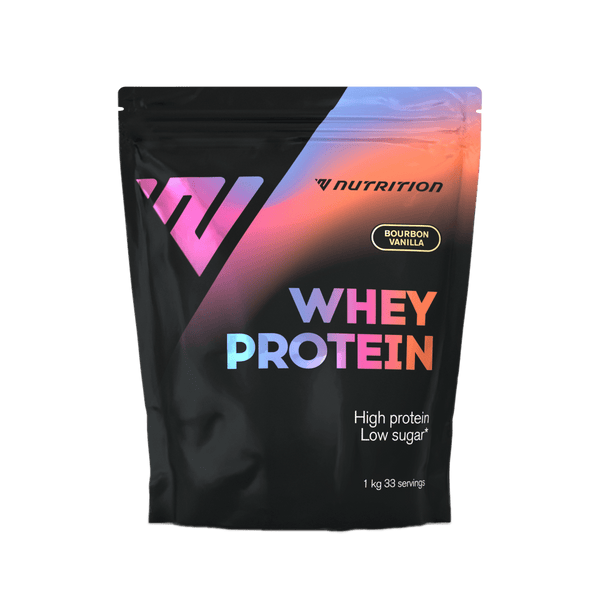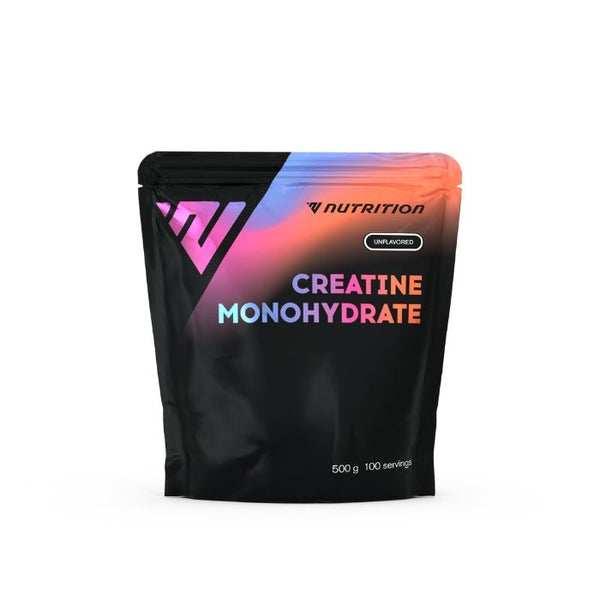Recently, people have increasingly been admoning the positive effects of creatine on human health and physical abilities. Creatine is a nitrogen-containing organic acid that increases energy and ensures the execution of movements.
Although creatine is used for different purposes, it is most often popular with bodybuilders, physically active people and professional athletes, since it is a simple dietary supplement to increase physical strength.
Although creatine is a very popular dietary supplement, often people are not quite sure about the safety and effectiveness of its use.
Good news for those who are already taking creatine or are about to do so: more than 500 reliable research results show that it is both completely safe and effective.
But if you still have doubts or just want to know more about creatine, read on! Next, six benefits of creatine.
Increase energy
Creatine actively increases the concentration of phosphokreatin in the muscles. Phosphocreatine is an important substance found in vertebrate muscles and helps to accumulate phosphates to provide the necessary energy for the muscles.
Phosphocreatine also works in combination with ATF, a molecular substance that is a universal source of energy for processes that take place in the body.
Basically, without an adequate amount of phosphocratin and ATF, your body would not be able to perform its daily functions.
Since creatine works by increasing the presence of phosphocratin and ATF in your body, its use provides an overall influx of energy.
This is an excellent benefit not only for bodybuilders, athletes and physically active people, but also for those who experience excessive fatigue.
A scientific study looked at physical activity fatigue in athletes, involving them in a cycling test.
Those taking creatine reported significantly reduced levels of fatigue compared to a group of participants who did not use it , even under extreme temperature conditions.
Builds healthy muscles
Creatine is mainly popular with bodybuilders, professional athletes and other physically active people because it is known to help increase muscle mass.
Creatine helps your body build muscle in the following ways:
- actively improves signaling roads, promoting the growth of new muscle tissue;
- affects functions that cause the body to build more muscle mass, such as IGF-1 levels and the Akt/PCB signalling arm;
- increases the volume of cells, increasing the water content in the muscles; this process contributes to the rapid growth of muscle mass;
- reduces the presence of myostamine, a hormone that inhibits muscle development, in the body.
Improves physical abilities
Since creatine increases the amount of phosphokreatin and ATF when used, your body gets an additional surge of energy, which is essential for high intensity training and improving physical endurance.
Several studies show that the use of creatine really has a positive effect on physical abilities, since it improves and increases:
- force;
- the ability to run quickly in short distances;
- muscle endurance and mass;
- the ability of the body to regeneration;
- brain function.
In addition, a recent scientific study has found that creatine can increase physical abilities by up to 15 percent during high-intensity workouts.
Helps prevent and combat various diseases
Creatine not only helps to increase muscle mass and improve physical abilities during training. It has also been shown to have an effect in preventing the development of various diseases , especially those related to brain-related diseases.
Phosphocreatine – the same substance responsible for additional energy and muscle growth is also associated with reducing the risk of developing many neurological diseases. In case of decreased phosphocreatine levels, there is an increased risk of developing neurologicalisk. Since one of the main benefits of taking creatine is an increase in phosphokreatin levels, it actively helps prevent and reduce the development of various neurological diseases.
Creatine also helps to prevent and reduce the development of the following diseases:
- Alzheimer's disease;
- ischemic stroke;
- epilepsy;
- brain and spinal cord injuries;
- ALS;
- Parkinson's disease.
Although creatine is not able to completely stop the development of these diseases, studies show that it significantly reduces symptoms, slows the progression of diseases, and also improves life expectancy in cases of development of certain diseases.
Actively improves brain function
Now you know that creatine significantly increases phosphocracamine and ATF levels. But these substances are not only responsible for increasing muscle mass, additional energy and inhibiting the development of diseases. They also stimulate brain function and improve their health.
Apart from the stimulating effect of creatine on phosphokreatin and ATF synthesis, it also increases dopamine levels and promotes mitochondrial function.
This, in turn, means that creatine is able to improve memory, mental abilities, as well as the ability to perform various complex tasks.
If you are not taking creatine supplements, you are likely to take your entire dose by eating meat – unless, of course, you are vegetarian or vegan.
People who do not eat or consume food supplements containing creatine often have lowered creatine levels in their body.
In a recent study in which participants – vegetarians – were given a creatine supplement, researchers observed between 20% and 50% better results in memory and mental abilities tests.
Helps lower blood sugar and fights diabetes
Creatine is also great for boosting glut4 function.
In simple words: GLUT4 is a transportmolecule that ensures that the amount of blood sugar they need is absorbed into your muscles.
Occasionally, the function of GLUT4 may be impaired, which may result in various illnesses and health problems.
Thus, as creatine boosts glut4 function, blood sugar levels decrease and eventually stabilise.
Apart from the positive effects on blood sugar levels, creatine is actively working to help the body get rid of this sugar faster, which in turn means a reduced risk of developing diabetes mellitus.
This risk is often assessed by taking into account how soon after a meal an individual's blood sugar levels rise.
People with relatively slow growth in sugar levels are at greater risk of developing diabetes.
So, by increasing the dose of creatine, it is possible to reduce the risk of developing diabetes mellitus.
Final word
To sum up, creatine is a vital natural substance that brings many different benefits to your health and physical abilities.







